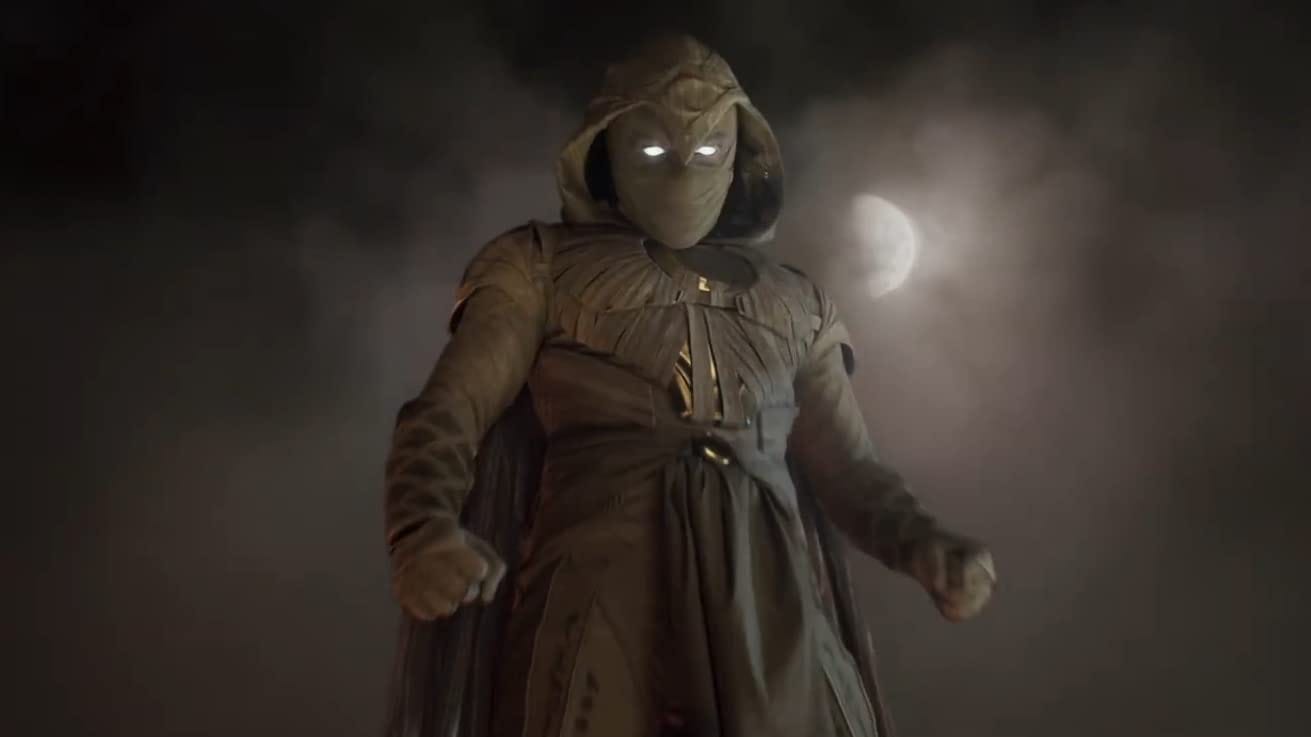Moon Knight
The newest MCU series on Disney+ has some interesting ideas and cool authentically Egyptian flavor, but takes its own little time to get rolling.
Major caveat to this review: Disney+ only allows critics to see the first four episodes of “Moon Knight,” the latest Marvel Cinematic Universe series starring Oscar Isaac as a man bestowed with powers by a wayward Egyptian god. So I’m rendering judgment based on just the first portion.
But given that it’s only a total of six episodes long, and that by the end of the fourth it felt like “Moon Knight” was still in the gearing-up portion of its storytelling, I think my disappointment is still warranted.
The Moon Knight is surely one of the lesser-known heroes in the Marvel multiverse, a darkling avenger whose abilities wax and wane with the moon. He hasn’t appeared in any of the MCU movies, and I’m guessing he won’t be in future crossovers. Creator Jeremy Slater was the original writer on the gawdawful 2015 “Fantastic Four,” if that’s any hint.
Moon Knight is interesting in that he’s the rare superhero explicitly endowed with mental health challenges, in his case disassociative identity disorder, or what is commonly called split personalities. We’ve seen this in villains like James McAvoy in “Split” and “Glass,” but not in an ostensible good guy.
Another note: the filmmakers made a point of using a lot of Egyptian cast and crew in this production — probably a reaction to some of the (legitimate) criticism of the MCU being white dude dominated.
Isaac plays Steven Grant, an extremely meek British fellow who is stuck working in a museum gift shop, despite knowing a lot about Egyptian mythology. He chains himself to his bed owing to his vivid dreams and tendency toward sleepwalking, and has trouble connecting with others.
He finds himself in possession of a mysterious golden scarab, which is also being sought by Arthur Harrow (Ethan Hawke), the leader of a strange cult devoted to Ammit, a banished Egyptian goddess who believed in judging people for any sin they have committed — present, past, or even in the future.
It seems Harrow wants to resurrect Ammit, bringing about the apocalyptic endtimes that seem to be the threat in every MCU property.
(Maybe once, just once, the stakes can be high without it being the end of the world? How many times is the world gonna be in danger of ending??)
Steven finds himself chased and in peril, experiencing blackouts where he wakes up and finds his accosters are all suddenly dead or disabled. This is when he comes to learn that Marc Spector, a ruthless mercenary, is also occupying his body.
Furthermore, Marc is himself the “avatar” to Khonshu, another disfavored god, and can summon a white cowled suit that lends him super-strength and the ability to heal most any wound. Khonshu favors punishing the wicked, but only after the fact, and appears as a man with a huge bird-like skull and staff (voiced by F. Murray Abraham) who exhorts or warns whoever happens to be controlling the body.
For a god, he can be rather ill-tempered and spiteful.
As things go on, Marc and Steven can talk to each other via seeing each other in any reflection, arguing over their current predicament and who should control their body and when. We mainly know who’s who because Marc is always scowling and speaks in an American accent, while Steven has a high-pitched English lilt and perpetually seems flabbergasted.
May Calamawy soon turns up as Layla, an archaeologist with a very personal connection to Marc and the whole godly squabble. She’s very capable in her own way, actually combining the best strengths of Marc and Steven.
Again, speaking to just the first four episodes, Marc/Steven spends nearly all his time in human form, and the Moon Knight persona only appears a handful of times. So we don’t get a clear sense of his capabilities.
It’s definitely an arresting look, all stark white with a hooded cowl and glowing eyes. Moon Knight has various weapons he can throw or wield, including some metallic symbols on the vest of his costume, and unlike other MCU heroes doesn’t seem above slaying is enemies.
In a jokey aside, whenever Steven summons the suit he appears with the same white face and eyes but in an alabaster double-breasted tuxedo — the idea being that the standard armor-and-cape look of superheroes is foreign to him.
I was never bored by the first two-thirds of “Moon Knight,” but it’s definitely following a storytelling path more akin to “WandaVision,” which for my money didn’t really have me fully engaged until about the fifth episode. Just my luck.
I’ll certainly be eagerly tuning in for the last two episodes, if only to see where this all goes. Some people are getting tired of superhero stories, but not me. The key is balancing the very human foibles and challenges of these characters against the god-like powers they wield.
So far, “Moon Knight” does a good job of the former, but we’re still waiting for him to cut loose and show us what he’s really got.





